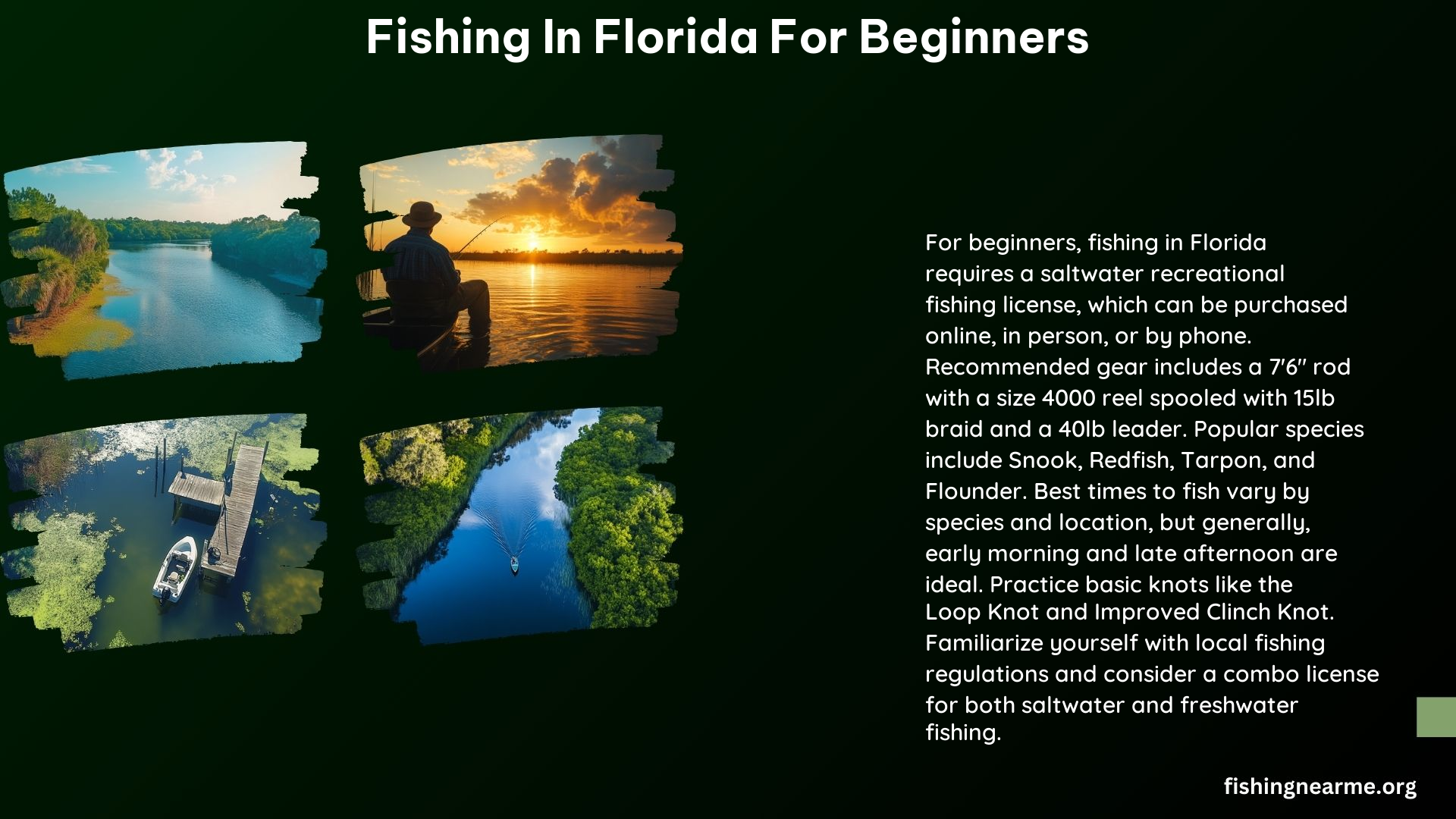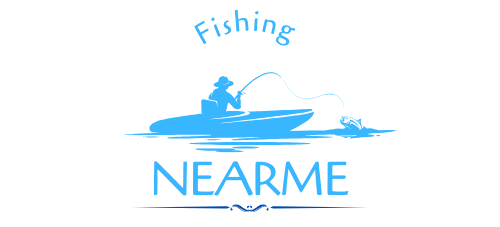Fishing in Florida offers a diverse array of opportunities for beginners, from freshwater lakes and rivers to the vast saltwater coastlines. Whether you’re interested in catching bass, snook, or tarpon, this guide will provide you with the essential information to get started on your fishing adventure in the Sunshine State.
Basic Equipment and Licenses Required
To begin fishing in Florida, you’ll need the following essential equipment and licenses:
Fishing License
A freshwater or saltwater fishing license is required, depending on where you plan to fish. You can purchase a license online at GoOutdoorsFlorida.com, in person at a license agent or tax collector’s office, or by calling toll-free 888-FISH-FLORIDA (888-347-4356).
Rod and Reel
A medium action spinning rod and reel is a great all-around outfit for most fresh or saltwater fishing. For inshore saltwater fishing, a 3500 series reel with 10 or 15 pound braided line and a 20 pound leader is recommended, paired with a 7 foot medium/heavy action rod.
Pliers
Needle-nosed pliers are useful for removing hooks from fish and de-barbing hooks.
Natural Bait
Live or natural bait such as shrimp, crabs, or small fish can be effective for various species.
Key Regulations and Restrictions

When fishing in Florida, it’s important to be aware of the following regulations and restrictions:
- License-Free Fishing Days: There are specific days when a fishing license is not required, but all other rules such as seasons, bag and size limits still apply.
- Special Permits: Additional permits are needed for targeting certain species like snook, lobster, tarpon, or reef fish.
- Bag and Size Limits: Check the specific limits for each species you are targeting to ensure compliance with regulations.
Best Places to Fish in Florida
Florida offers a diverse range of fishing opportunities, with some of the best locations for beginners including:
Southwest Florida
Areas near Venice and Englewood offer good opportunities for catching species like snook, redfish, and tarpon.
Florida Panhandle
Known for its deep sea fishing potential, with species like Marlin, Sailfish, Tuna, and Swordfish.
Key West
Excellent for fly fishing and spearfishing, with species like Peacock and Largemouth Bass, Redfish, Tarpon, and smaller Sharks.
Treasure Coast
Inshore saltwater fishing areas like the grass flats and mangroves are suitable for catching tarpon, snook, redfish, speckled trout, flounder, and black drum.
Types of Fish and Techniques
Freshwater Fishing
Target species like Largemouth Bass using a spinning rod and reel with a #6 or #8 circle or long-shanked Aberdeen hook, fished about 2 feet under a small bobber.
Saltwater Fishing
Use a #1 circle hook, fished about 2 feet below a slip sinker and swivel, with a focus on using the lightest weight needed to keep the bait in place due to current or waves.
Inshore Saltwater Fishing
Techniques involve using lures like paddle tails with a 1/8 or 1/4 ounce jig head, and adapting to weather and tides.
Fly Fishing
Effective for species like Peacock and Largemouth Bass, Redfish, Tarpon, and smaller Sharks, using specialized gear and techniques.
Additional Tips and Resources
- Practice and Patience: Be patient with yourself and practice your techniques to improve your chances of catching fish.
- Interactive Games and Guides: Utilize interactive games and guides provided by the Florida Fish and Wildlife Conservation Commission to learn about marine fisheries conservation and saltwater fishing.
- Local Guides and Charters: Consider hiring a local guide or charter to gain expertise and increase your chances of catching fish.
References
- https://www.reddit.com/r/saltwaterfishing/comments/18rn294/beginner_jettyshoreline_fishing_in_south_florida/
- https://fishingbooker.com/blog/fishing-in-florida/
- https://myfwc.com/fishing/first-time-angler/
- https://myfwc.com/fishing/basics/
- https://fishyourassoff.com/inshore-saltwater-fishing-for-beginners.html
